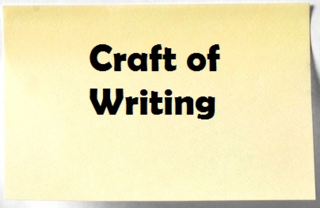Improve your writing by dumping fuzzy words
To really  improve your writing, your words should be very specific and read maybe something like what you’d find in a story that’s no so loosely written.
improve your writing, your words should be very specific and read maybe something like what you’d find in a story that’s no so loosely written.
Huh?
The problem with the above advice is it’s riddled with fuzzy words – or words that aren’t precise: really, very, maybe, something like, no so loosely. Such words weaken your writing by giving an inexact, out-of-focus picture of the landscape or idea that you’re portraying. Other fuzzy words include almost, half- , very, really, seem, looked like, and felt.
They’re also known as “weasel words,” because as a writer, you have a responsibility to be precise. By using fuzzy words, though, the writer fails to do the hard work of writing and instead behaves like an optometrist who does a sloppy job and hands a customer a pair of glasses in which the prescription is slightly off.
The opening sentence would be greatly improved if rewritten as: To improve your writing, your words should be specific, like those in a tightly constructed story.
As with any rule, there’s an exception, of course. Fuzzy words might be used in dialogue to show that a character has an imprecise sense of what occurred (“I only got a glimpse – it looked to be almost eight feet tall.”) or when that character is being deceptive (He suppressed a grimace. “It’s very good,” he said, not looking up.).
Need an editor? Having your book, business document or academic paper proofread or edited before submitting it can prove invaluable. In an economic climate where you face heavy competition, your writing needs a second eye to give you the edge. I can provide that second eye.
Related articles
 Delete bookisms in your story's dialogue
Delete bookisms in your story's dialogue Tighten writing by cutting begin fallacy
Tighten writing by cutting begin fallacy Get it entirely right: All together vs. altogether
Get it entirely right: All together vs. altogether Get it right, all right vs. alright
Get it right, all right vs. alright Getting focused on close up vs. close-up
Getting focused on close up vs. close-up



